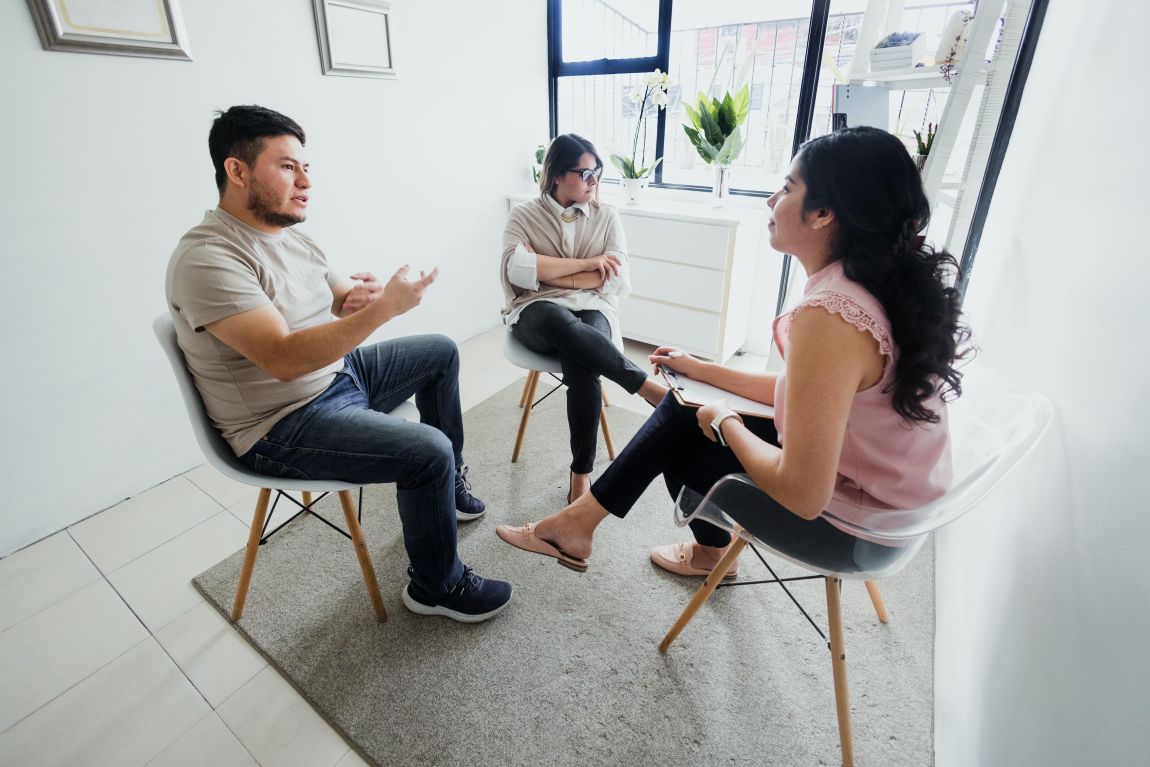Couples therapy can be an effective way to address issues within a relationship, but finding the right therapist can be a challenging task. A therapist's approach, communication style, and expertise can impact the success of therapy. Therefore, it is essential for couples to find a therapist who is a good match for their needs and preferences.
Questions
What's Your Preferred Romantic Getaway?
Key Points
- Finding the right therapist is crucial for the success of couples therapy, and it's important to feel a connection with them.
- Tips for finding the right therapist include looking for experience and specialties, reading reviews and testimonials, and scheduling a free consultation to determine fit.
- During the consultation, asking questions about the therapist's specialties, comfort level, counseling style, fees, session length, recommended amount of sessions, and ideal client can help determine if they are a good fit.
- Additional resources for couples therapy include a list of helpful questions to ask your therapist and services like body awareness and self-compassion. The author also encourages feedback and suggests doing research and consultation together as a couple.
Article Index
This article aims to guide how to find the right fit for couples therapy by outlining essential questions to ask during the consultation process. One crucial aspect of finding the right couples therapist is establishing a connection. It is essential to feel comfortable with the therapist and believe that they are compassionate, trustworthy, and competent.
A strong connection can create a safe environment for couples to open up and share their feelings and concerns. Therefore, it is vital to schedule a consultation with potential therapists to determine fit. During the consultation, couples can ask questions, learn about the therapist's approach and experience, and assess whether they feel comfortable working with the therapist.
By asking the right questions and finding a therapist who is a good fit, couples can increase their chances of success and achieve their therapy goals.
Ten Questions That You Should Ask A Prospective Therapist
Importance of Connection
The importance of connection between a couples therapist and their clients is emphasized in finding the right fit, as evidenced by the tips for finding the right therapist, scheduling a free consultation to determine fit, and questions to ask during consultation to determine fit provided in the pre-existing knowledge.
Tips for building connection include finding a therapist who is a good listener, empathetic, and non-judgmental.
Signs of a good therapist-client relationship include feeling understood, respected, and supported, as well as being able to communicate openly and honestly.
Establishing a strong connection with a therapist is crucial in couples therapy, as it provides a safe and supportive environment for clients to explore their relationship dynamics and work towards their goals.
A therapist who is able to establish a strong connection with their clients is also more likely to be effective in helping them navigate challenges and achieve positive outcomes.
It is therefore important for clients to take the time to find a therapist who they feel a connection with, in order to maximize the benefits of couples therapy.
Helpful Resources
One resource that can be beneficial for couples seeking therapy is a list of helpful inquiries to guide their sessions with their therapist. These questions can help couples identify and work through their issues, set goals for their therapy, and establish a strong rapport with their therapist.
Some examples of questions to ask include: What is your experience working with couples? What is your counseling style? How long do you usually recommend therapy for couples? These inquiries can help couples determine if the therapist is the right fit for their needs and preferences.
In addition to traditional talk therapy, Modern Love offers services focused on body awareness and self-compassion to encourage deeper understanding and appreciation within the relationship. These services aim to help couples connect with their bodies, emotions, and inner selves in order to better understand their relationship dynamics and patterns.
By cultivating a greater sense of self-awareness and self-compassion, couples can work towards building a stronger, more fulfilling relationship.
Encouragement and Suggestions
To optimize the benefits of couples therapy, it is recommended that individuals do research together and seek a therapist who aligns with their unique needs and preferences. While it may feel daunting to take the first step towards seeking therapy, couples therapy can have numerous benefits, such as improving communication, deepening emotional connection, and strengthening the relationship overall. However, it's important to acknowledge the initial hesitations that may arise when considering therapy and to approach the process with an open mind and a willingness to explore.
Here are three suggestions to overcome initial hesitations and make the most out of couples therapy:
-
Embrace vulnerability: Couples therapy requires honesty and vulnerability, and it's important to approach the process with an open mind and a willingness to share your thoughts and feelings with your partner and the therapist.
-
Set realistic expectations: It's important to have an idea of what you hope to gain from therapy, but it's also important to set realistic expectations and to remember that therapy is a process that takes time and effort.
-
Practice self-care: Taking care of yourself outside of therapy sessions is just as important as participating in the therapy process. Engage in activities that bring you joy and fulfillment, and prioritize your mental and emotional well-being.

